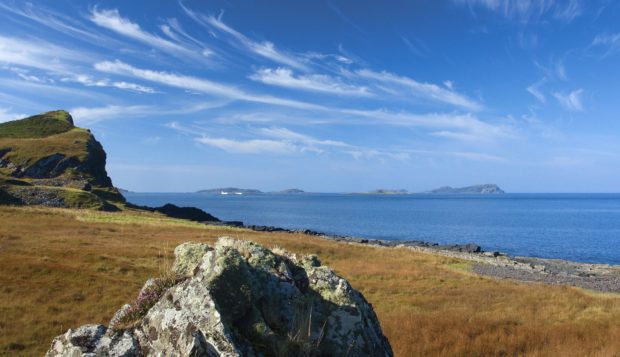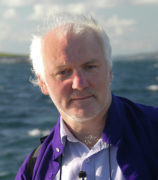I know there’s plenty of farm and harvesting summer jobs available this year in Scotland and I hope young people will take the chance to work the fields. I certainly recall with delight all the summer jobs I had when I was a student.
The first paid part-time job I had, as a schoolboy, was peeling the tatties in Onorio Di Ciacca’s fish and chip shop in Oban, before graduating on to washing the lemonade bottles at MacColl’s lemonade factory in the town.
Then I worked in full-time summer jobs for the four seasons I was at university. The first year as a kitchen porter in the Great Western Hotel. The second as a builders’ labourer, the third summer as a deckhand on a lobster boat, and in the final summer, planting trees for the Forestry Commission.
The life of a kitchen porter is pretty near the bottom rung of the catering industry ladder. These were the grand old, almost Victorian, days when seaside hotels were bursting at the seams, and the old kitchens down in the gunnels were hot as hell producing food for hundreds of guests.
A kitchen porter learns to navigate his or her way not just between the sinks and flying pots and pans but between rival factions: the head chef, the commis chef and the pastry chef, not to mention the almost-invisible but important pecking order between waiters. All of us governed by an impeccably-dressed man with a beautiful trimmed white moustache, who seemed straight out of Hollywood – or at least out of Ealing Studios – who was the hotel’s head manager and glided between the chaos of the kitchen and the order of the silver dining room as if all the food was being produced by magic without any sweat or endeavour. Just to prove, time and again, that anything that looks simple takes an enormous amount of effort.
Working as a labourer was physically challenging to a lad more used to turning poetry pages than cement with a shovel. But shovel I did, keeping up for a whole summer with two plasterers who were forever shouting for more cement even though my arms were already sailing like windmills mixing the batches. I emerged almost like muscleman Charles Atlas flexing my biceps at the student discos when I returned to university. Not that it did any good.
The third summer was great fun, working with a splendid character called Dickie Dan lobstering out from Seil Sound late every Sunday evening, returning on Thursday to the weekly fish market in Oban. We sailed down through the Sound of Luing, out past the Garvellachs to fish there, and to the north of Islay. I couldn’t swim, and once, when hauling in the creels, put my hand in to find a sharp-toothed dogfish instead of a lobster, stepped back in shock and fell over the side. I sank twice before being rescued by my shipmate with the boat-hook.
The fourth summer job – planting trees – was the best. We had a works van, and eight of the best yarners from the Isles of Seil and Luing all with glorious nicknames – Haffey, Angy Pedan, Cracken, Baldo and others – were taken every morning up to our hill bothy where the first thing, of course, was to make a mug or three of tea. And maybe a game of cards and a wee game of darts, leaving the more serious game of pool for later. The cocktail cabinet was only opened on Friday afternoons. Honest.
I may be stretching the truth a bit here but I think, on occasions when it rained (or didn’t), we worked in shifts. Four went out to plant the trees while the other four stoked up the fire, made some more tarry tea, and maybe bacon and eggs and had a game of pool by which time the other four returned to warm themselves while the rest trotted off to plant more trees. Miraculously, a whole forest grew up there and was successfully and profitably harvested by the Forestry Commission some years later!
Since these four summers I have worked professionally as a journalist, broadcaster actor and writer, yet not only did I have more fun during these four summers but the experiences gained on these jobs have rooted the other career(s) throughout. It may be part of the reason I despair of much of our political and so-called professional classes – MPs and cabinet ministers who appear never to have done a day’s work outside graduating from Eton on to Oxbridge and straight into a parliamentary research career before becoming a fount of ignorance on a government (or opposition) bench. Where is the hinterland Denis Healey spoke of?
Looking back, I suppose what I learned most of all was the simplest of things – that everything depends on who’s around you. Systems and structures can be devised and erected, but as the great Para Handy himself might have said, the ship is only as good as the crew on board. The happier the crew the better the work: take that miraculous forest as evidence, planted by a splendid workforce that would have graced the Vital Spark itself sailing on a fine summer’s morning down through the Crinan Canal.
Angus Peter Campbell is an award-winning writer and actor from Uist

